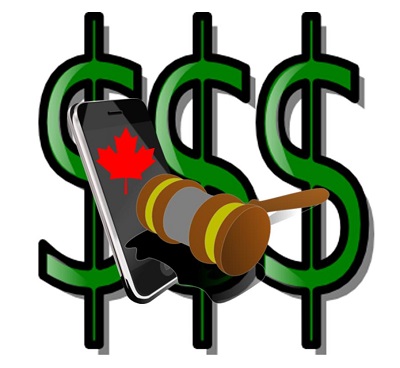The startup is currently driving forward at a rapid rate and intends to be huge in the not-too-distant future.
Magic Leap, a company that has already managed to raise about half a billion dollars from some massive tech giant investors have been working on secret technology for years now and it now looks as though augmented reality is going to be a central component to its future.
Its own version of computing over mixed reality is causing them to prepare for millions of gadgets.
The company, which has even received investment dollars from Google, is “gearing up to build millions of things,” said its president and CEO, Rony Abovitz. It is currently running part of its operations in Florida out of an abandoned Motorola factory and Abovitz said that it has begun manufacturing. “We’re not ready to announce when we’re shipping, but it gives you a signal that we’re not far,” he said. While not much is actually known about the device being created by the company, what is believed is that it will be a small sized computer that is self contained and that will likely include augmented reality as it is meant to be something that consumers will be comfortable using while in public.
Aside from augmented reality, it might also involve the use of retinal projection and was developed through surgical research.
 Once the Magic Leap device arrives, it is very likely that it will be in direct competition with the HoloLens from Microsoft, which is already taking development kit applications. The HoloLens is wearable technology that uses augmented reality and that has been in development for some time.
Once the Magic Leap device arrives, it is very likely that it will be in direct competition with the HoloLens from Microsoft, which is already taking development kit applications. The HoloLens is wearable technology that uses augmented reality and that has been in development for some time.
According to Abovitz, when it comes to his own company’s devices, “Anything you can do on a smartphone, you can do on Magic Leap.” This gadget also has a working software development kit and it has issued invitations to a number of development teams to start to make mobile apps that will be compatible with the tech. It also holds hackathons on a regular basis at its Florida offices.
So far, the mobile apps that have been built for the Magic Leap device include basic games that allow an augmented reality ball to be thrown back and forth, as well as an application that projects a digital hand and stove that provides directions for making macaroni and cheese.
Bell Canada was caught rating applications fraudulently and is now required to pay a penalty.
After having been caught posting fraudulent mobile app reviews and ratings, Bell Canada has now agreed to pay the $1.25 million penalty that was laid down by the Competition Bureau in the country.
The telecommunications giant had been downloading its own free applications to give them top ratings.
That said, it was reviewing these mobile apps without identifying that they had a relationship to the source of the applications. Beyond having to pay the “administrative monetary penalty”, also known as an AMP, Bell Canada has now also agreed to “enhance and maintain its corporate compliance program, with a specific focus on prohibiting the rating, ranking or reviewing of apps in app stores by employees and contractors.”
The company will also be sponsoring a workshop that helps to overcome behaviors such as its false mobile app reviewing practices.
 The workshop to be sponsored will look into the trust that Canadians have in the “digital economy, including the integrity of online reviews,” said the consent agreement that was registered with the Competition Tribunal and that was made public last week.
The workshop to be sponsored will look into the trust that Canadians have in the “digital economy, including the integrity of online reviews,” said the consent agreement that was registered with the Competition Tribunal and that was made public last week.
The Commissioner of Competition, John Pecman, explained that “I am pleased that Bell Canada demonstrated leadership to fully resolve the Competition Bureau’s concerns in this matter.” Pecman went on to say that he applauds the combined compliance that has been adopted by Bell in order to bring resolution to this issue, “which will benefit both consumers and the digital marketplace.”
The accusation against Bell, as per the Competition Bureau, is that last year in November, Bell’s own employees were encouraged to download two of the company’s free apps, “Virgin My Account” and “MyBell Mobile” from the Google Play store and from iTunes. The employees were encouraged to leave positive ratings and reviews for those mobile apps without also stating that they were working for the company. The Bureau explained that the false ratings were taken down as soon as it was notified that this had been occurring. They were eliminated as of December 2014. That said, the Bureau found that the false ratings and reviews had temporarily impacted the overall star rating for those applications with the potential of giving it an unfair advantage within those app stores.
 Once the Magic Leap device arrives, it is very likely that it will be in direct competition with the HoloLens from Microsoft, which is already taking development kit applications. The HoloLens is wearable technology that uses augmented reality and that has been in development for some time.
Once the Magic Leap device arrives, it is very likely that it will be in direct competition with the HoloLens from Microsoft, which is already taking development kit applications. The HoloLens is wearable technology that uses augmented reality and that has been in development for some time.
 The workshop to be sponsored will look into the trust that Canadians have in the “digital economy, including the integrity of online reviews,” said the consent agreement that was registered with the Competition Tribunal and that was made public last week.
The workshop to be sponsored will look into the trust that Canadians have in the “digital economy, including the integrity of online reviews,” said the consent agreement that was registered with the Competition Tribunal and that was made public last week.